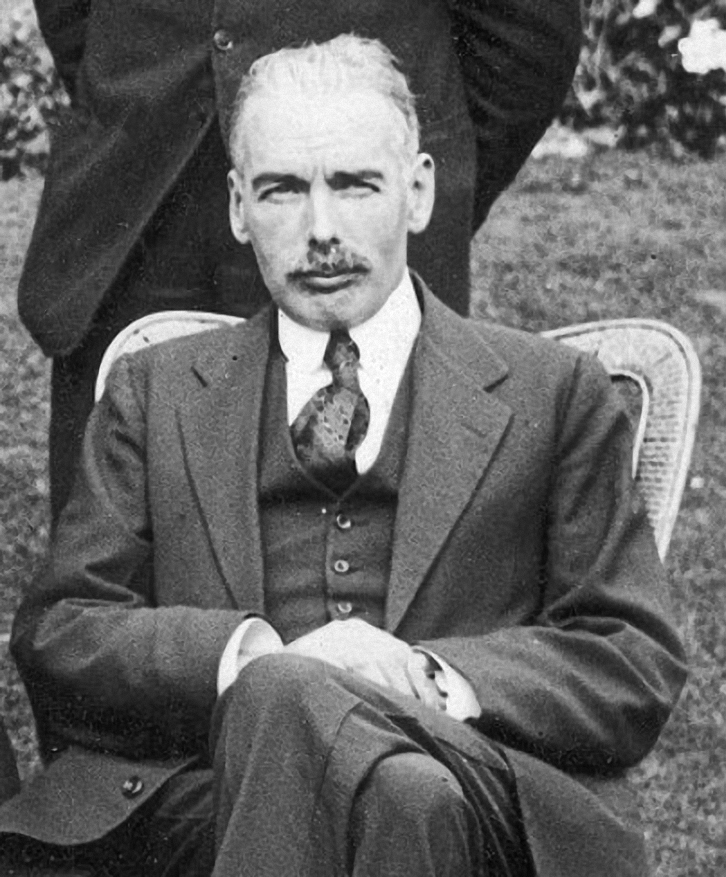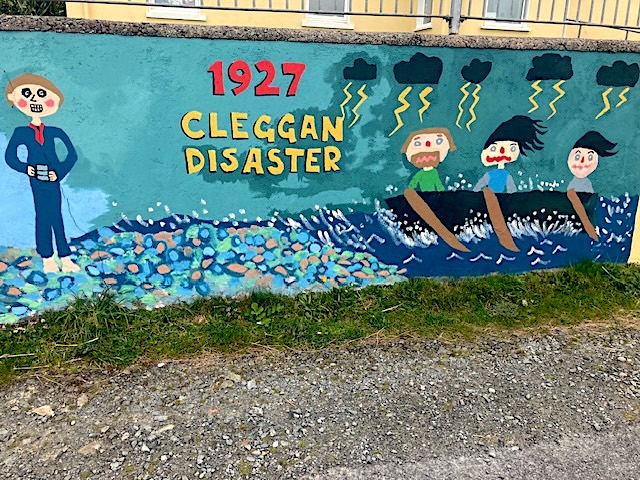BY AODHÁN CREALEY
SEPTEMBER

03/1939
Britain and France declared war on Germany. The Dáil and Senate, meeting in emergency session, passed the Emergency Powers Act. Throughout that decade de Valera held firmly to a policy of neutrality, as he had during the Spanish Civil War, when he resisted a large swathe of Irish public opinion in favour of General Franco. A European war with Britain at its centre was, however, a different matter, but timing was in his favour. A year earlier he had successfully negotiated the return of the Treaty ports with Prime Minister Chamberlain. Neutrality, therefore, even in a European conflict remained a practical policy, though, as it transpired, one delicately nuanced in favour of one side. With a highly experienced cabinet—men like Seán MacEntee, Frank Aiken and Seán Lemass—and overwhelming public support, the state was as ready as possible (barring a German invasion) for the days ahead. Not so across the border, where the administration was totally unprepared for war. In power since 1921, Prime Minister Lord Craigavon was described by a cabinet colleague as a man who was incapable of doing ‘more than one hour’s constructive work’ in a day. Despite the province’s vulnerability to German attack, the Department for Home Affairs, under the notorious Dawson Bates, showed little sense of urgency in the matter of civil defence. Indeed, the population was far from united in the face of such a threat. A day after a blackout had been introduced, it was clear that at least in places like nationalist West Belfast the restriction had been largely ignored. In the first two days of hostilities the RUC logged twelve anti-war incidents, including the painting of hostile slogans such as ‘ARP [Air Raid Precautions Act 1937] for English slaves, IRA for the Irish’.
01/1975
Four members of an Orange lodge, including a father and son, were killed and six others injured in an IRA gun attack on Tullyvallen Orange Hall, near Newtownhamilton, Co. Armagh.
02/1975
On a day of national mourning, over 200,000 lined the three-mile route of Eamon de Valera’s funeral from the Pro-Cathedral to Glasnevin cemetery.
05/1975
Two people were killed when a bomb, planted by the IRA’s Balcombe Street gang, exploded at the Hilton Hotel in London’s Park Lane.
16/1925
Charles J. Haughey, Fianna Fáil politician who led four governments, born in Castlebar, Co. Mayo, the third of seven children of Seán Haughey and Sarah McWilliams, both natives of Swatragh, Co. Derry.
23/2015
Narendra Modi, president of India, en route to the United States, made a one-day visit during which he held talks with Taoiseach Enda Kenny and met representatives of Ireland’s 26,000-strong Indian community.
24/1725
Arthur Guinness, brewer and philanthropist who founded the Guinness Brewery at St James’s Gate in Dublin (1759), born in Ardclogh, near Celbridge, Co. Kildare, the first of five children of Richard and Elizabeth Guinness.
26/2005
General John de Chastelain, head of the Independent International Commission on Decommissioning, announced that the IRA had completed the decommissioning of its arsenal of weapons.
27/1825
The Stockton and Darlington Railway in north-east England, the first public railway in the world to use steam locomotives, opened. Ireland’s first railway, Dublin to Kingstown (Dún Laoghaire), opened in 1834.
29/1725
Robert Clive, ‘Clive of India’, promoter of the British Raj, latterly Baron Clive of Plassey (1762), born in Shropshire, the son of a small landowner. His c. 12,000-acre estate centred on Ballykilty, Co. Clare, was renamed to commemorate his famous victory for the East India Company over the Nawab of Bengal and his French allies (1757).
OCTOBER

28/1927
The Cleggan Bay, Co. Galway, disaster, a freak storm during which some 45 fishermen lost their lives. Expecting a good catch of herring and mackerel, which were plentiful that year, the fishermen, in some 30 two-man currachs, were just an hour at sea when the storm broke. The outcome was devastating. Sixteen men from the village of Rossadilisk were drowned, as were nine from the island of Inisbofin and ten from the Iniskea Islands off the Mullet Peninsula in north-west Mayo. Whether the men were unaware of the storm warning or merely took their chances out of economic necessity is unclear, but the toll might well have been lower if some hadn’t been so anxious to save their precious gear, loans for which had left many of them in debt. In the event the disaster led to family breakups, with many of the 148 dependants forced to emigrate. The fishing communities of both Connemara and north-west Mayo never fully recovered, with the full extent of the poverty in those coastal areas only uncovered when substantial relief funds, raised at home and abroad, were disbursed. One official from the National Fund Relief committee visited the Iniskeas to meet victims of the tragedy. He described living conditions there as ‘pathetic’. There were over twenty cottages on each island, not of old-fashioned sturdy thatch but airless and damp with corrugated roofs; fuel had to be brought from the mainland, there being no bog on either island. If the fishermen were hearty and weatherbeaten, the women and children, he reported, looked unhealthy and undernourished, surviving as they did on fish, tea, bread and potatoes, with little milk and butter and no green vegetables.
01/1925
Denis Henry (61), Catholic Unionist MP for South Londonderry (1916–21) and the first lord chief justice of Northern Ireland, died.
02/1975
Twelve people died in an unprecedented wave of UVF shootings and bombings throughout Northern Ireland. The surge in violence led to the banning of that organisation.
03/1975
Dr Tiede Herrema, Dutch manager of Ferenka Ltd, Limerick, was kidnapped by an IRA gang seeking the release of the imprisoned Dr Rose Dugdale.
12/1975
Oliver Plunkett, Catholic archbishop of Armagh and primate of Ireland, who was hanged, drawn and quartered for high treason at Tyburn (1681), was canonised by Pope Paul VI in Rome.
13/1775
The Continental Navy, later the US Navy (1794), was established by the Second Continental Congress. The first naval commander appointed was the merchant captain John Barry from County Wexford.
13/1925
Margaret Thatcher, British prime minister (1979–90) and leader of the Conservative Party (1975–90), born Margaret Hilda Roberts in Grantham, Lincolnshire, where her father owned a tobacconist’s and grocery shop.
23/1975
Peter McKearney (63) and his wife Jane (58), parents of five children, were shot dead by the UVF in their farmhouse home near Moy, Co. Tyrone. Amongst the first on the scene were neighbours Charles and Teresa Fox, who were both killed by the UVF in 1992.
25/1825
Johann Baptist Strauss, Austrian composer who was largely responsible for the popularity of the waltz in the nineteenth century (he composed over 500 of them, including The Blue Danube), born in Vienna.
25/1925
Darrell Figgis (43), journalist and politician who was acting chairman of the committee that drafted the Constitution of the Irish Free State (1922), died, by suicide, in London.
29/1975
In a series of factional attacks between the Provisional IRA and the Official IRA, involving up to 90 of their members, seventeen people were wounded, one fatally.
